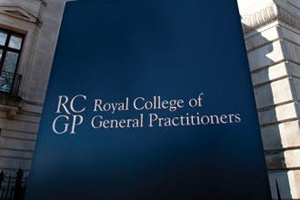RCGP remains opposed to change the law on assisted dying

The RCGP will continue to oppose a change in the law on assisted dying, today’s council meeting confirmed.
The College said 6,674 members responded to an online survey – 13.47% of all of those consulted – and the RCGP Council agreed that the results didn’t support a change in its existing position.
Having been asked whether the college should change its current position of opposing a change in the law on assisted dying:
- 47% of respondents said that the RCGP should oppose a change in the law on assisted dying
- 40% of respondents said the RCGP should support a change in the law on assisted dying, providing there is a regulatory framework and appropriate safeguarding processes in place
- 11% of respondents said that the RCGP should have a neutral position and
- 2% of respondents abstained from answering
Prior to this, the RCGP last reviewed its position on assisted dying, which is illegal in the UK, in 2014, after a members’ consultation the previous year.
The issue will now not be revisited by the Council for at least five years, unless significant developments occur in the meantime.
RCGP chair Professor Martin Marshall said: ‘As the UK’s largest medical royal college it is important that we engage in debate and listen to what our members have to say on wide-ranging issues affecting GPs and their patients.
‘Assisted dying is a controversial topic and this was reflected in the responses to our consultation. However, the highest proportion of respondents said that the college should continue to oppose a change in the law on assisted dying.
‘This was the largest consultation on an issue of public policy that the college has conducted both in terms of response rate and volume of respondents. The survey results have been helpful in guiding college council as to what our position should be.
‘The role of the college now is to ensure that patients receive the best possible palliative and end of life care, and to this end we are working with Marie Curie and others to support this.’
However, Dignity in Dying criticised the decision. According to chief executive Sarah Wootton, it reveals an ‘emphatic shift in views from 2013’, with ‘over half of GPs voting for the RCGP to drop its opposition to assisted dying’.
She said: ‘For the college to wilfully ignore these results raises serious questions about its credibility as a representative body. Why bother asking members for their views if they are then completely disregarded? This regressive decision also abandons patients, the vast majority of whom want to see a change in our cruel, outdated assisted dying laws.’
It means the RCGP continues to disagree with other medical bodies, including the Royal College of Physicians, Royal College of Nursing and Royal Society of Medicine, which hold neutral stances on assisted dying.
Earlier this month, the BMA launched its first survey of views on doctor-assisted dying, while Professor Sir Sam Everington, chair of London’s 32 CCGs, recently took to Pulse to urge the RCGP to shift to neutrality on the topic.
Visit Pulse Reference for details on 140 symptoms, including easily searchable symptoms and categories, offering you a free platform to check symptoms and receive potential diagnoses during consultations.










